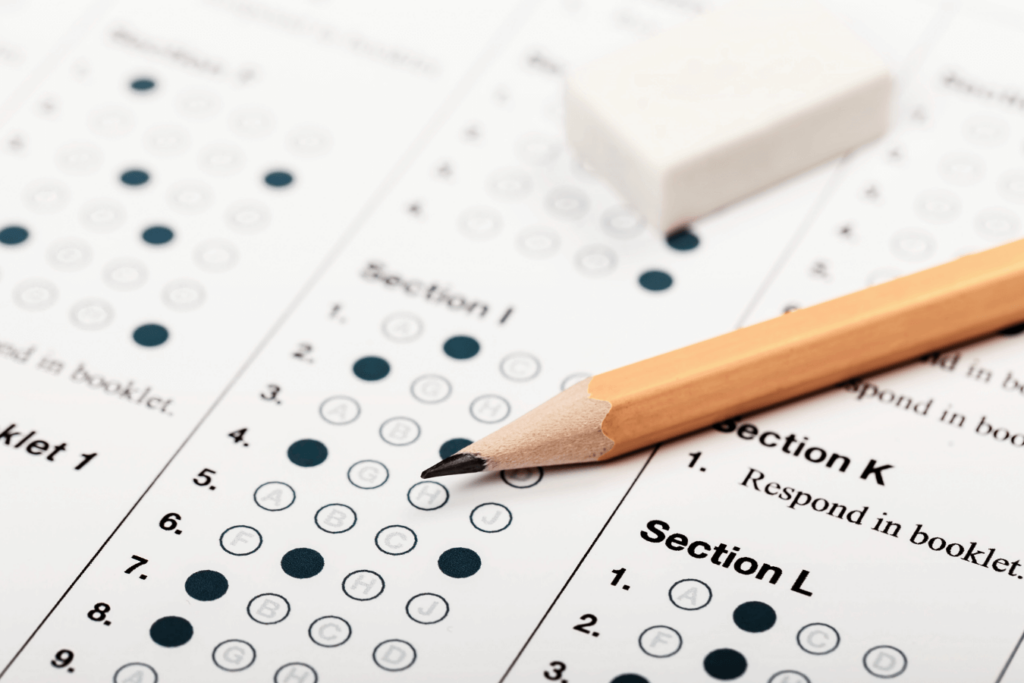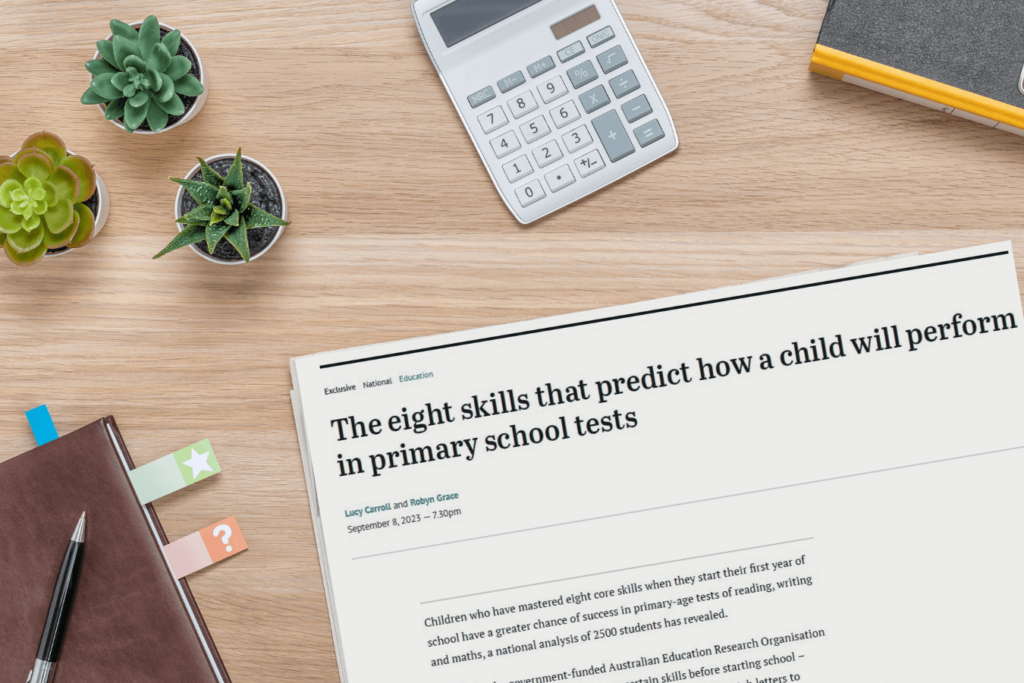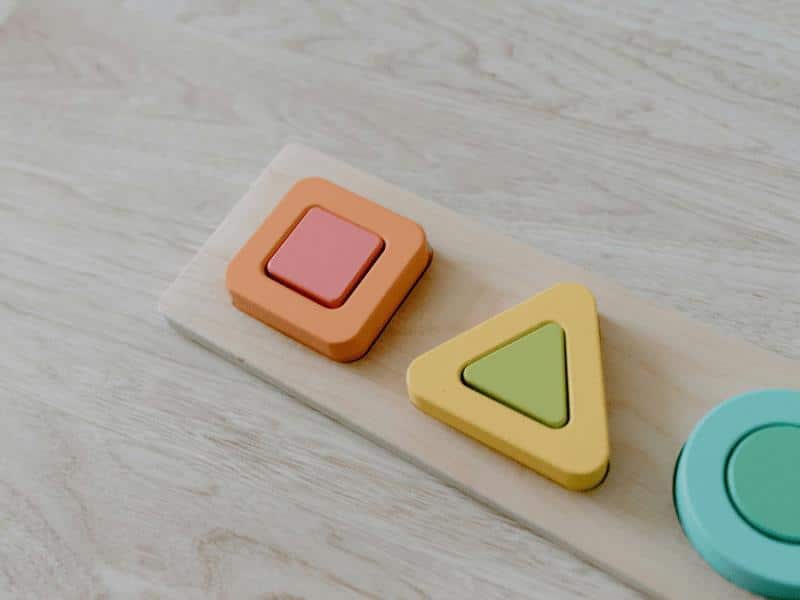
Achieving Academic Success Through Eight Core Skills
In the ever-evolving landscape of early childhood education, the journey to academic excellence begins long before children set foot in a primary school classroom. Recent research conducted by the Australian Education Research Organisation (AERO) reveals that children who possess eight core skills when they start primary school are more likely to thrive in literacy and numeracy throughout their primary years.

The AERO report painted a dire picture of the Australian Education System.
According to the AERO report, children who have mastered eight core skills when they start their first year of school have a greater chance of success in primary-age tests of reading, writing, and maths.
These skills form the foundation for academic success, and they are as follows:
- Recognising Numbers 1 to 10
- Reading Complex Words
- Counting to 20
- Remembering Things Easily
- Attaching Sounds to Letters
- Using One-to-One Correspondence
- Writing Own Name in English
- Being Aware of Writing Directions in English

The AERO report pinpointed 8 crucial skills to master before starting school.
Shichida’s Approach to Early Childhood Development
Shichida’s Commitment to Active Learning
At Shichida Australia, we wholeheartedly embrace the principles highlighted in the AERO analysis. Our commitment is to empower children with these essential skills, equipping them for a lifetime of academic success and personal growth. Our approach is rooted in active learning, which means children are not passive recipients of knowledge but active participants in their own learning journey.
Cognitive Development
Cognitive development is at the core of our programs. We believe that children can begin developing cognitive skills from an early age. Our activities are designed to promote the recognition of numbers and the reading of complex words, providing children with a strong foundation in literacy and numeracy. This active approach engages children’s minds and encourages them to explore and understand the world around them.
Numeracy Skills
Counting to 30 is a critical skill that Shichida prioritises. We know that counting to 20 is a very important milestone, but we recognise that being able to surpass that, offers young learners’ enormous benefits in their learning journey moving forward.
Our interactive and engaging methods make learning numbers not only educational but enjoyable as well. By incorporating play into our teaching methods, we ensure that children not only learn to count but also develop a love for numbers and mathematics.
Young children at Shichida explore the relationship between numbers, money, time, mental math and calculation skills through fun games, activities, and songs. This active engagement with numeracy sets the stage for future success in primary school tests.
Memory Enhancement
Remembering things easily is a skill we nurture through various memory-boosting exercises. Our goal is to enhance children’s memory retention capabilities, facilitating effective learning. Enhancing a child’s working memory and the capacity to process, remember, and retrieve information takes practice. Through activities that challenge memory recall and retention, children become active learners who can readily absorb and apply new information.
Language Proficiency
Attaching sounds to letters is an essential step in language acquisition. Shichida places a strong emphasis on language development, enabling children to express themselves articulately. Our programs encourage active participation in language learning, where children engage with letters and sounds in a way that fosters language proficiency. This active approach ensures that children not only learn to read but also develop strong language skills.
We assist young learners in developing their phonics skills, exploring the world of alphabet letters, reading, and creative storytelling, all the while expanding their vocabulary through engaging tools like flashcards, songs, and a range of interactive activities. From an early age, children not only learn to recognise their names but also develop the ability to write them.
We develop this writing ability as the program continues, equipping the children with the tools they need to learn and write creatively. This eventually includes mind mapping and descriptive writing. These skills are invaluable when it comes to year 3 NAPLAN testing, as Shichida kids are bursting with confidence!
Fine Motor Skills
The ability to write one’s own name and an awareness of writing directions in English are indicative of well-developed fine motor skills. Shichida incorporates activities that enhance fine and sensory motor skills, setting children up for success in writing and other tasks.
Through hands-on activities and creative tasks, children actively refine their fine motor skills, preparing them for the challenges of primary school. We develop these skills through folding origami, threading, cutting shapes, drawing with songs, and much more! Shichida children develop their dexterity and eventually a good pencil grip, from a young age.
Active Engagement
Shichida’s approach ensures that each child’s unique needs are met. Working closely with each child’s parent or guardian, we empower children to take an active role in their own education. This leads to a love of learning that lasts a lifetime. A well-developed love of learning positively impacts academic performance and achievement over time. Children who are enthusiastic about learning are more likely to excel in their studies and pursue higher education successfully.
Parental Involvement
At the heart of Shichida’s success is the involvement of parents and guardians. We believe that education is a collaborative effort. Through close collaboration with each child’s parent or guardian, we empower families to participate in their child’s educational journey actively. This partnership ensures that children receive consistent support at home and in our programs.
Additionally, this special time spent in class together, learning and exploring together, creates strong parent-child bonds and heightened self-esteem in children. This in turn leads to positive social and emotional development.
The Reality of the Australian Education System
As per the AERO report, the state of Australia’s education system warrants a closer examination. It’s disheartening to note that one in three Australian children failed to meet new proficiency benchmarks in the recently released NAPLAN results. These benchmarks, designed to assess students’ literacy and numeracy skills, serve as a crucial measure of educational progress.
Year 3 children who have fallen behind in reading and mathematics face an uphill battle. The data indicates that these young learners are unlikely to catch up throughout their schooling journey. This revelation underscores the urgency of equipping children with essential core skills from the outset.
Bridging the Gap
Shichida Australia acknowledges the challenges within the Australian education system and takes them as a call to action. We are committed to bridging the gap between where students stand academically and where they aspire to be. Our programs not only instil the eight core skills identified by AERO but also go beyond to nurture well-rounded individuals.
In addition to the core skills, Shichida places a strong emphasis on:
- Critical Thinking: We encourage active questioning and problem-solving. Children develop the ability to think critically and approach challenges with confidence. We help children develop curious and well-rounded minds, capable of solving complex problems.
- Creativity: Our program fosters creativity and imagination, nurturing the next generation of innovators and thinkers. Creativity is important for self-expression and thinking beyond the immediate, as well as innovation, adaptability, and approaching challenges with fresh perspectives.
- Emotional Intelligence: We believe that academic success is not the sole measure of a child’s potential. Emotional intelligence is equally important, and our programs promote empathy, self-awareness, and effective communication. A well-developed EQ is crucial for building healthy relationships and emotional well-being.
- Holistic Growth: Shichida’s approach encompasses physical well-being, character development, and social skills. We recognise that academic achievement is just one facet of a child’s overall growth. Holistic growth equips children with practical life skills, such as communication, decision-making, and time management, that are invaluable throughout their lives.
Paving the way for academic achievement
The AERO analysis serves as a valuable reminder of the critical core skills that pave the way for academic achievement.
Shichida Australia stands as a beacon of hope in the landscape of early childhood education. We recognise the challenges that young learners face in today’s educational system and are dedicated to providing solutions. Our commitment to empowering children with essential skills, critical thinking, creativity, emotional intelligence, and holistic growth sets the stage for not just academic success but a fulfilling life journey.
At Shichida Australia, our mission is to nurture and develop these core skills within each child. We believe that every child has the potential to go to the top of the class, and we’re here to guide them on that remarkable journey. Our active learning approach ensures that children are not passive observers but active participants in their own development, setting the stage for a bright and successful future.
As the AERO analysis reminds us, the early years of a child’s life are a precious window of opportunity. At Shichida, we are determined to make every moment count. Our active learning approach ensures that children are not passive observers but active architects of their futures.
Reference
Title: “The Eight Skills that Predict How a Child Will Perform in Primary School Tests” Authors: Lucy Carroll and Robyn Grace Publication Date: September 8, 2023 Source: [https://www.smh.com.au/education/the-eight-skills-that-predict-how-a-child-will-perform-in-primary-school-tests-20230905-p5e2a6.html]


